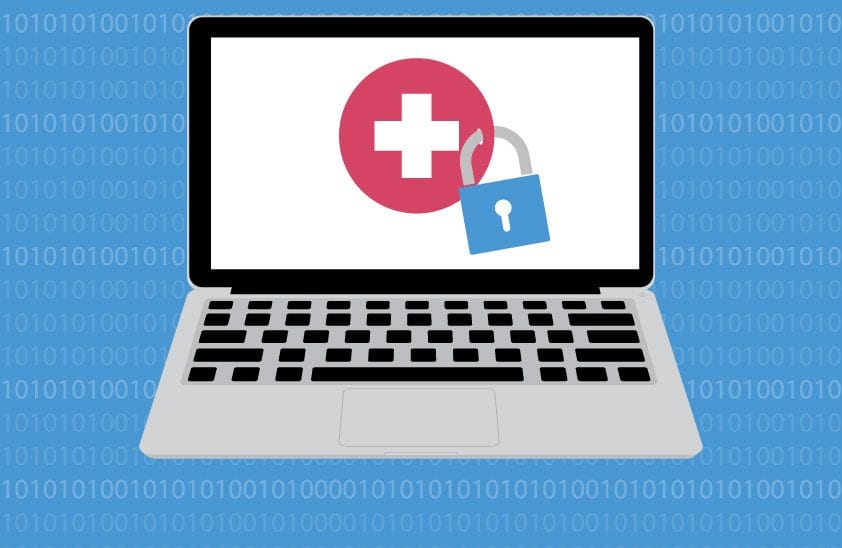Why the healthcare industry needs privacy enhancing technologies

Ellison Anne Williams, CEO and founder, Enveil, shares in this exclusive article with Top Business Tech why Privacy Enhancing Technologies (PETs) are crucial.
The balance between the public interest and healthcare-related data privacy has been the subject of an ongoing debate that has only heightened as the world combats a global pandemic. As the UK Health Secretary Matt Hancock said at the 2020 Founders Forum HealthTech Summit, “We are absolutely rigorous about the needs of privacy, but we mustn’t let that get in the way of innovation that can improve people’s lives. We must do both — allow for innovation of the data and allow for the highest quality of privacy and cybersecurity.”
In order to respond effectively to a global pandemic, governments and jurisdictions need access to extensive healthcare data sourced from locations and populations around the world. While the data is abundant, securing broader access to this data landscape is not without its challenges. The inherent sensitivities associated with healthcare data dictate that enabling access cannot come at the expense of privacy and security. As a result, regulatory and technical barriers often restrict healthcare data collaboration efforts.
Finding balance in using this sensitive data has typically hinged on the premise that data privacy and data collaboration are mutually exclusive functions. Yet, there is an increasingly visible family of technologies delivering on the proverbial have-your-cake-and-eat-it-too by preserving data privacy throughout the processing lifecycle while securely facilitating collaboration. Privacy Enhancing Technologies (PETs) overcome many of the access, regulatory, and technical barriers that currently restrict global sharing of healthcare-related data by enabling critical parties to securely search data, no matter where it is stored, without disclosing the search’s content or jeopardising the security of the underlying data.
PETs aren’t a technology of the future; they are here today and ready to help facilitate healthcare progress on a global scale. The technologies with this category uniquely provide essential privacy assurances by allowing disparate entities to securely derive insights from decentralised data sources without pooling, standardising, or compromising the security or ownership of the underlying data. By protecting data while it’s being used or processed and without requiring data to be moved from its point of origin, PETs can increase our collective ability to share public health data quickly and efficiently without tearing down the existing regulatory frameworks put in place to protect individual privacy.
For example, the use of a predominant Privacy Enhancing Technology, homomorphic encryption, has the potential to play a critically important role in COVID-19 response by providing the data protection necessary for purposes such as contact tracing and risk analysis. While this may be the most timely use case, there are many other ways that PETs can deliver important advances for the healthcare industry.
PETs create a paradigm shift for public health readiness by facilitating secure collaboration while allowing sensitive healthcare data to remain under the control of its respective country, jurisdiction, or organisation. This enables optimal secure and private data sharing between governments and public health agencies. In the clinical research arena, medical professionals and public health officials can use PETs to search securely or analyze decentralised research data across organisational, privacy, and regulatory boundaries while safeguarding patient privacy and sensitive medical indicators. Healthcare organisations and entities can also use PETs to protect and enhance the operational value of their medical supply chain by enabling secure federated queries of inventory and increasing supplier visibility, allowing suppliers to respond more effectively to fluctuating demand and helping to prevent the depletion of essential products.
READ MORE:
- The future of MedTech explored by healthcare and technology leaders at business summit
- The future of technology within health and social care
- Groundbreaking Research From Xactly Highlights the Disruptions that Transformed Sales Organisations in 2020, Presents an Outlook for the Future
- What can corporates learn from digital transformation in the COVID era?
The global pandemic has created a new operating environment for many healthcare organisations to quickly innovate and adopt new technologies. While PETs are not new, recent technological breakthroughs have made them ready for use at scale. There is a growing recognition of their value for real-world applications, including opportunities for unlocking better healthcare data analysis and collaboration. By enabling secure access to and using data by a wider pool of stakeholders, PETs provide a foundational building block for progress and innovation that will benefit the global healthcare community for years to come.
For more news from Top Business Tech, don’t forget to subscribe to our daily bulletin!
